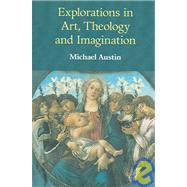Explorations In Art, Theology And Imagination
, by Ridgwell Austin,Michael- ISBN: 9781845530280 | 1845530284
- Cover: Nonspecific Binding
- Copyright: 8/8/2014
There have been many Christian interpretations of art from a variety of theological perspectives. The direction of these critiques has invariably been from theology to art. Theological (even dogmatic) presuppositions have determined the way in which art in general or movements in art of particular works of art have been interpreted. There is now need for an understanding of art which affirms the crucial importance of art for theology. The direction of the critique must be from art to theology, rather than the other direction. Christian theologians must at the very least appreciate and affirm the value of art for the religion of the Incarnation. This book sets out some steps towards such an appreciation through the exploration of three interconnecting themes. In his exploration of the first theme. Embodiment and Incarnation, the author argues that Richard Wollheim's statement that 'Art rests on the fact that deep feelings pattern themselves in a coberent way all over our life and behaviour' (Art and its Object, 1980) applies equally to religion. With the second theme. Similarities and Differences, the author notes the way each can act as a critique of the other. Christianity has, particularly though not exclusively in its reformed and evangelical traditions, tended to overvalue the word of Scripture and of dogma, with the result that the non-verbal arts have been at best ignored and often feared. Generally, on their side, the arts (particularly in the modern period) have asserted their autonomy and have generally rejected notions of responsibility to social, ethical or religious principles or ideals. Finally, in treating the theme Faith and Imagination, the author argues that art canserve as an agent of salvation by helping theology to create frames of reference for the i







